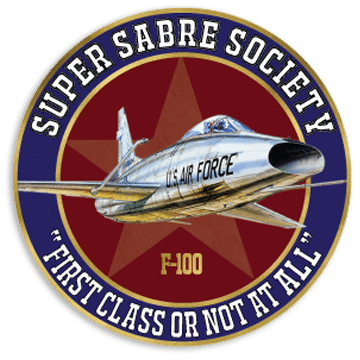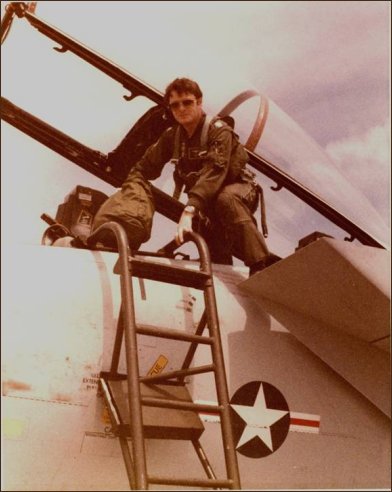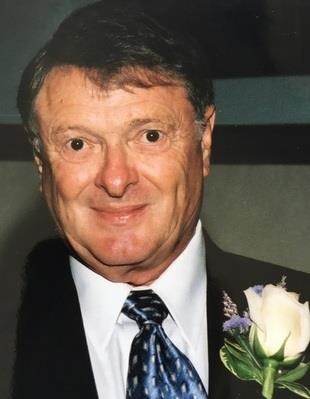“My first time in an airplane was an orientation ride in the T-33 during Flight Surgeon School. That began my love affair with flying. I was drafted and allocated to the Air Force and assigned to Cannon. My association with the pilots and support people of the F-100 changed my life. To be part of the flying community and be treated as one of them saved me from ending up a nerdy doctor rather than a person with broader interests. I have many great memories and am very grateful to the F-100 pilots and the fighter pilot community.”
Deployments:
Incirlik, Turkey NATO deployment and Cuban Missile Crisis
Tahkli, Thailand-First TAC Deployment 1963
Operation Hard Surface, Saudi Arabia (Yemen Civil War-1964)
Military Contributions
Advanced Trauma Life Support Instructor and Program Director
USAFR Program to train Air Force Reserve dentists in Battlefield Medicine
Consultant to USAF Surgeon General
Visiting Professor-Wilford Hall (Lackland AFB) Resident Training Program
Provided Civilian training for USAF and Navy Surgeons
Civilian Career – Head and Neck Surgeon, Mayo Clinic, Minnesota and Arizona
Founding Member-Mayo Clinic Arizona, Department Chairman
Professor-Mayo College of Medicine
Senior Aviation Medical Examiner
FAA Medical Standards Revision Committee
EAA Medical Advisory Group
AirPort Commissioner, Scottsdale, AZ
St Vincent De Paul Medical Clinic, Phoenix
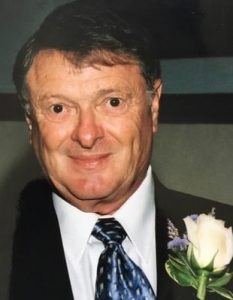 Lawrence William DeSanto, MD (Col USAFR MC, Ret) “Headed West” on May 1, 2020.
Lawrence William DeSanto, MD (Col USAFR MC, Ret) “Headed West” on May 1, 2020.
Scottsdale – Lawrence William DeSanto, MD, 85, of Scottsdale, AZ passed away at home on May 1, 2020, after a recent decline in health. He is survived by his wife Loralee, his children Greg DeSanto, MD, Lisa DeSanto Wemple and husband Timothy of Glen Ellyn, IL, Sara DeSanto and her husband James Lileks of Minneapolis, Jill DeSanto and her husband Jean Charles Courbois of Minneapolis; his former wife and mother of his children Marilyn DeSanto of Scottsdale, his nine grandchildren: Hannah, Ryan, and Julienne DeSanto, Daniel Wemple, MD, his wife Erin and great-granddaughter Nadine, Lauren Wemple Hawkridge and her husband John, Stephen Wemple, Natalie Lileks, and Alessandra and Laura Courbois.
Larry was born and raised in West Duluth, MN, son of Therese Rotondi DeSanto and Rudolph DeSanto. He attended St. James Catholic School and Denfield High School. He completed his premedical course work at the University of MN – Duluth and proceeded to the University of Minnesota for medical school, graduating in 1960. After an internship year in Duluth, he was drafted into the Air Force medical corps. He was based at Cannon Air Force Base in New Mexico and served overseas in Turkey, Saudi Arabia, Yemen, Thailand, Cambodia, and Laos. He returned to complete his residency in Otolaryngology at the Mayo Clinic, Rochester, MN and continued his training in head and neck surgery at Case Western Reserve University in Cleveland.
Larry dedicated his career to the practice and teaching of head and neck surgery at the Mayo Clinic. He trained generations of surgeons at Mayo and around the world. He was a pioneer in establishing the subspecialty of head and neck surgery. Larry twice received the Teacher of the Year Award by the Mayo Graduate School of Medicine. His clinical interests and research were: head and neck oncology, ophthalmopathy of Graves Disease, vocal rehabilitation, and ethics and quality of life. Larry relocated from Rochester, MN to Scottsdale, AZ in 1987 as one of the original physicians to establish Mayo Scottsdale. He retired from the Mayo Clinic as a Professor of Otolaryngology in 1997.
Larry enjoyed many hobbies and interests including flying his plane, playing golf, swimming, studying military history, tinkering at his cabin at the Mogollon Rim, traveling the world, and participating in every event with his children and grandchildren. He served from 1977 – 1994 in the Air Force reserves and retired as a Colonel MC. His military service shaped him greatly and instilled a deep respect for his country. In retirement, Larry volunteered at the St. Vincent de Paul Clinic in Phoenix.
Larry and Loralee were married in 2001. They enjoyed many world travel adventures. The family is grateful to Loralee for her love and care of Larry following a brain injury in 2014 due to a complication from surgery. Larry taught us patience and gratitude through his recovery. Larry was the consummate teacher of how to be a better human.
His family will hold a celebration of life after the current restrictions on public gatherings have been relaxed. The family welcomes memorial gifts in Larry’s name to the Society of St. Vincent de Paul Medical Clinic at PO Box 13600, Phoenix, AZ 85002.
To Plant Memorial Trees in memory, please visit our Sympathy Store.
Published in The Arizona Republic from May 2 to May 10, 2020.
An Unlikely Caterpillar.
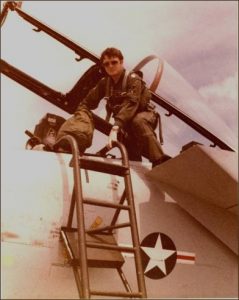 Remembering an event 40 years later is not always accurate, but I can still see in my mind’s eye the event that qualified me for membership in the Caterpillar Club. I was the flight surgeon with the 523rd TFS deployed from Cannon AFB to Saudi Arabia for operation “Hard Surface.” Hard Surface was one of those missions you were not supposed to talk about and had a short chain of command that bypassed TAC and the numbered Air Force. In Arabia, the squadron divided. The largest contingent stayed at Dhahran AFB and a small battle group of 3 F-100s (2Ds and 1 F) went to Jeddah to operate out of the civilian airport. I was one of six officers and about 100 enlisted men sent to Jeddah. There was a civil war in Yemen. Egyptian light bombers with Russian pilots were causing concern in the Saudi royal family. We were to make noise and be visible on the Saudi side of the border. As I recall, the rules of engagement allowed our pilots to defend themselves if attacked, so they flew armed. Because the missions were considered combat, I was not allowed to fly. By this time, I deployed with the 523rd to Incirlik during the Cuban Missile crisis and NATO rotation. I was with them for the first Tahkli deployment and was detached briefly to Laos. I had a lot of back seat time and was not happy about being grounded in Arabia. I was to return to civilian life in just a few months to continue surgery training, and the Saudi deployment was not mandatory. I was not about to let some new guy take over “MY” squadron while I was still at Cannon.
Remembering an event 40 years later is not always accurate, but I can still see in my mind’s eye the event that qualified me for membership in the Caterpillar Club. I was the flight surgeon with the 523rd TFS deployed from Cannon AFB to Saudi Arabia for operation “Hard Surface.” Hard Surface was one of those missions you were not supposed to talk about and had a short chain of command that bypassed TAC and the numbered Air Force. In Arabia, the squadron divided. The largest contingent stayed at Dhahran AFB and a small battle group of 3 F-100s (2Ds and 1 F) went to Jeddah to operate out of the civilian airport. I was one of six officers and about 100 enlisted men sent to Jeddah. There was a civil war in Yemen. Egyptian light bombers with Russian pilots were causing concern in the Saudi royal family. We were to make noise and be visible on the Saudi side of the border. As I recall, the rules of engagement allowed our pilots to defend themselves if attacked, so they flew armed. Because the missions were considered combat, I was not allowed to fly. By this time, I deployed with the 523rd to Incirlik during the Cuban Missile crisis and NATO rotation. I was with them for the first Tahkli deployment and was detached briefly to Laos. I had a lot of back seat time and was not happy about being grounded in Arabia. I was to return to civilian life in just a few months to continue surgery training, and the Saudi deployment was not mandatory. I was not about to let some new guy take over “MY” squadron while I was still at Cannon.
On the day Stan Wells and I ejected, I was supposed to go with the unessential personnel to lunch with a rich Arab construction person on the Saudi side of the Saudi-Yemen border. A C-130 was to pick up our contingent for lunch. I had a call to go to the U.S. consulate. I had a little unpaid medical practice in Jeddah, caring for civilians from the Consulate and the TWA wives whose husbands flew for the Saudi airline. I would do pregnancy checks and send the women off to Beirut when they were close to delivering their babies. I missed the goat grab flight. Arriving back to our little operation building I was advised that one of the D models was down, the F had to fly the mission and I was the only body to fly the back seat. I was more than happy to go. I suited up, put a canteen of water in the G-suit pocket and climbed aboard.
We were trailing a KB-50 tanker when there was a clunk, lots of warning lights and a very quiet airplane. The wingman said to the tanker, “It appears lead has flamed out and is going to make a dead stick landing.” We were at 28 thousand feet altitude and a few miles from a civilian airport. I do not remember how long the runway was, but I did remember the probabilities of a safe dead stick landing in the F-100.
I thought, or prayed or said “Stan-you will have to make a dead stick landing without a canopy.” Stan said, “Get your head back, Doc.” The next thing I remember was the canopy above me. We were in controlled flight, were slow, and had at least 10’000 feet below us so it was a nice safe ejection powered by the cannon shell. I had egress training, but no training on what to do after ejection. (That was later changed in Flight Surgeons school after my experience). I had attended deep-sea survival school so I did know how to use the quick disconnects on the ground. Getting on the ground was the problem. I pulled the lanyard to deploy the survival pack but was clueless that it did not deploy. (Later we found that some of the packs in the wing were rigged wrong and would not deploy.) Fortunately, I landed backward so did not have as much risk of the broken legs that often came with an undeployed survival pack. I plowed through the sand face first, got a mouth full of sand, and bit my tongue. Stan and I got together under the one tree in that big sandbox. Within a few minutes, we were surrounded by mean looking Arabs in white pickup trucks and with guns. We had our chit that said we were Americans but apparently, nobody could read. They took us back to the airfield and put us in an underground place with a guard. I was
told later they thought we were Russians and the explosion near the field was a bomb. Shortly after we were tucked away, a Pakistani dentist came to look at my bleeding tongue. He spoke English and we got out of jail. The Arabs boiled up a goat for a celebration. While Stan, I, and a group of Arabs were grabbing the goat, some soldiers brought the unexploded cannon shells to the room where we were eating and threw them into a pile. We ate fast and left the goat grab. The KB-50 burned off fuel, landed, picked us up and we were back in Jeddah for happy hour. (My Jeddah doctoring was compensated with home-brewed adult beverages.)
The word got back to Cannon quickly that we were down and recovered. Pat Berry, my neighbor, was working the Cannon command post. He sent the word home that we were alright. Later, information came back to the hospital commander without details. My wife got the full blue staff car visit by officers in Class A uniforms. The chaplain and the hospital commander came to comfort her. She met them on the way out the door, breezed by them saying- “I know all about that.” They thought she was a rather cool woman. When I cleared Cannon, I was asked to pay for my missing parachute. I left it in the truck with the guys with the guns. I think Rufus Woody had the bill canceled.
Larry DeSanto Col USAFR MC (RET)
